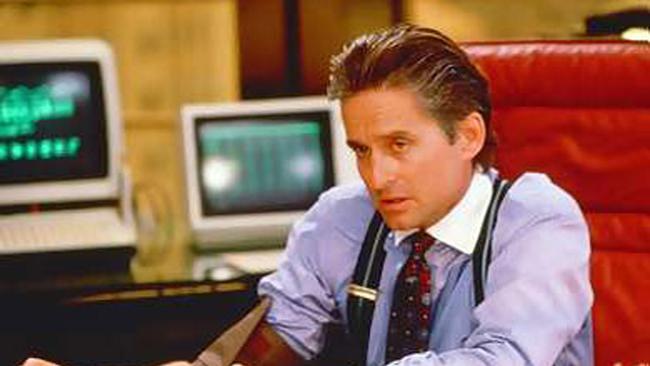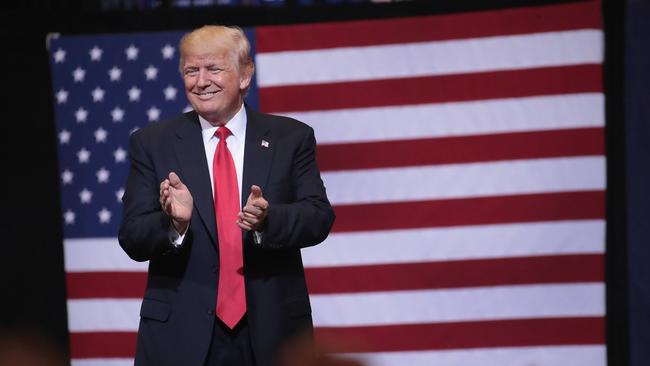The reaction to the bag ban has revealed our greed
SHOPPERS at my local supermarket are yet another example of our selfish society. Just look at banks, or plates piled high at a cruise ship buffet — greed will be our undoing, writes Kylie Lang.

Rendezview
Don't miss out on the headlines from Rendezview. Followed categories will be added to My News.
AS shoppers race to stockpile single-use plastic bags from Coles this week, it strikes me not how poorly off people will be by having to pay 15c a bag from Saturday, but how greedy people have become.
It is greed, and not need, that is at the heart of this last-minute grab.
They’re helping themselves to extra bags at self-scanning check-outs, asking exasperated staff to bag items individually, and stuffing car boots full of these flimsy grey things.
And yes, I know that in reality they are not single-use bags, we repurpose them to line our bins and pick up our dog’s poo. I’ve even turned one into a shower cap in a moment of desperation.
But people, they are plastic bags, and they’ve got to go, so get over yourselves and change the way you shop.
Greed, defined as the intense and selfish desire for something, is an ugly thread running through so much of society these days.
Contrary to the mantra of morally bankrupt Gordon Gecko in the 1987 film Wall Street, greed is not good.
It destroys relationships and distorts reality. It brings out the worst in people.

Look at how consumers carry on at the end of year financial sales, so blinded by the quest for a bargain that they become obnoxious.
Consider the way guests at functions, even when the invitation is free, seek to “get their money’s worth” by making off with the table decorations.
Find yourself at a smorgasbord — cruise ships are the worst — and watch how people load up their plates.
These are small things, perhaps, but symptomatic of a much larger problem.
Greed is now almost justified by the newly coined anxiety FOMO, the fear of missing out, but it is not only young people glued to social media who are affected. No one, it seems, wants to miss out on what they believe is theirs to claim, regardless of the affect, effect on others.
Our culture is sick with greed, according to Richard Eskow, a health and economics consultant and former US political adviser.
Eskow goes as far as calling greed “the social disease of our time”.
“Self-made celebrities often act as ritualised consumers on behalf of the general public,” he says.
“Their job is to swallow up the most excessive luxuries the wealthy lifestyle has to offer. They inadvertently use their power and influence to reinforce the corporate-driven, consumerist tropes that keep us enslaved to our own material desires,” he writes on the website Alternet.
If you think about, greed is everywhere. We see it in the improper actions of big banks, in the adoration of celebrities who glorify excess, and in the ascent to political power of people whose chief qualification is that they are rich.
US president Donald Trump is unashamedly pro-greed.
At a rally in Iowa in 2016, when he was the Republican primary frontrunner, he boasted: “I’m very greedy. I’m a greedy person. I love money,” adding that he wanted to be “greedy for our country”.
Fat lot of good that has done.
The gap between rich and poor in America is now a chasm, and Australia is following suit.
Yes, there has been wage growth in recent decades, but it has been unevenly distributed. In the latest Forbes’ Australia’s 50 Richest People list, there are 39 billionaires in this country as opposed to only two 30 years ago.

This is not to have a crack at people who have worked hard for their money and made their fortune, but it should not come at the expense of the poor.
The glorification of greed — in politics and in pop culture — sends a dangerous message that all that matters is self-gain, whether it be at the pointy end where profit is paramount or at the grassroots level where it manifests in the pilfering of plastic bags.
Eskow contests that today’s “culture of greed” is also an expression of pain and fear.
“It’s more terrifying than ever to try to survive on a middle-class income. Most people live one or two pay checks away from disaster,” he says.
“Very few of us feel that we have any real control over our own fate. The lives of reality show stars and rappers are merely the most obvious of our escapist fantasies.”
He may be right, but escapism is hardly going to help people feel grounded and able to lead productive lives.
One way to get more out of life is to expect less. I’m not talking about selling ourselves short, but refocusing our purpose.
If material gain is our main aim, then a good many of us are going to lose out. Even the world’s wealthiest don’t have protection against sickness and heartache.
As the late, great Stephen Hawking said: “We are in danger of destroying ourselves by our greed and stupidity. We cannot remain looking inward at ourselves on a small and increasingly polluted and overcrowded planet.”
Kylie Lang is an associate editor of The Courier-Mail.


